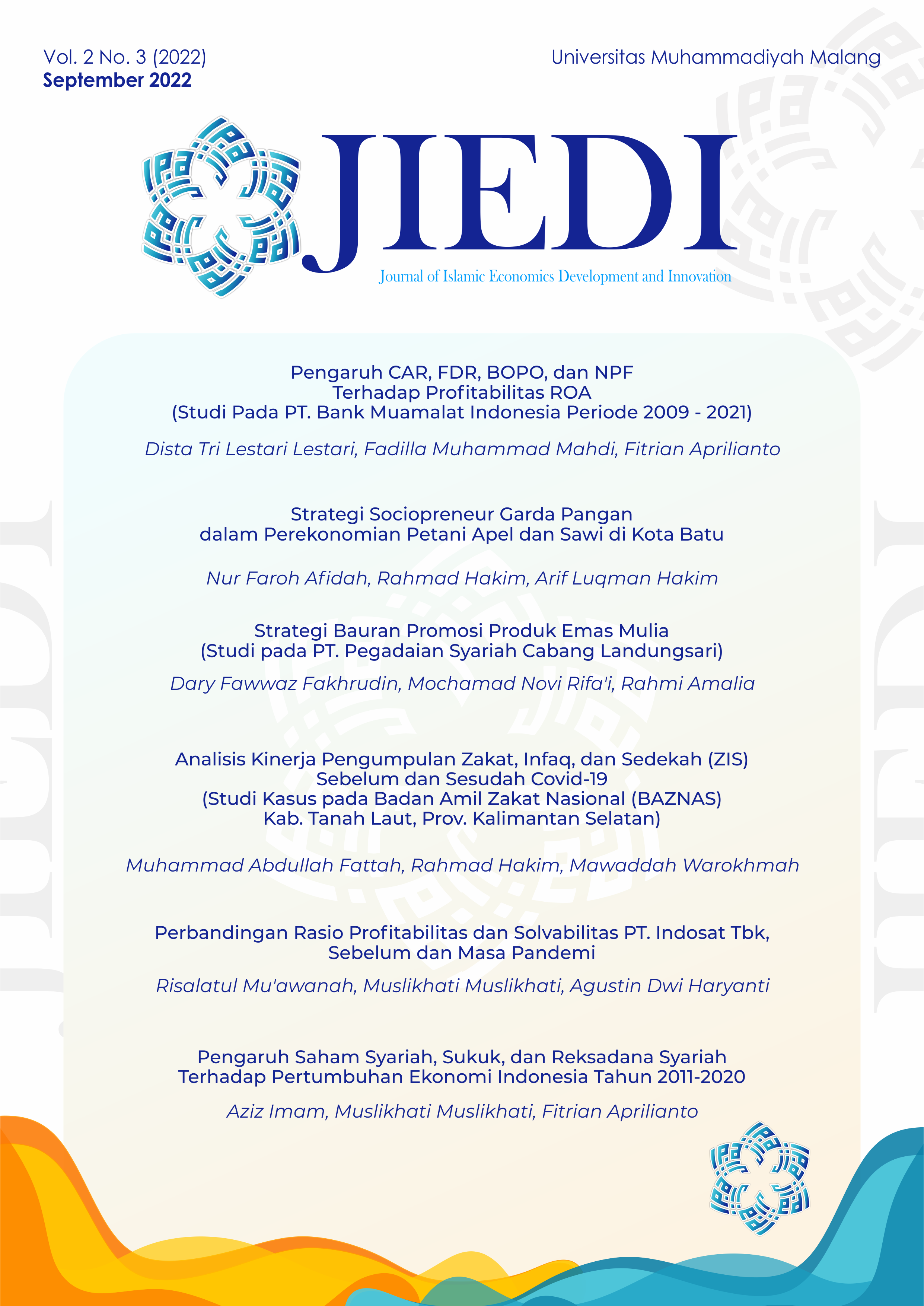Strategi Sociopreneur Garda Pangan dalam Perekonomian Petani Apel dan Sawi di Kota Batu
Keywords:
Strategi, Sociopreneur, Ekonomi, Pemberdayaan, Sosial.Abstract
Garda Pangan sociopreneur strategy with food rescue and gleaning programs is carried out by Garda Pangan and a team of volunteers, who are concerned about social and economic empowerment through gleaning for farmers. The purpose of this research is to make researchers and readers analyze the Sociopreneur Strategy of the Garda Pangan in the Economy of Apple and Petsai Farmers in Batu. The gleaning program by Garda Pangan, especially in the economic sector, is very important to achieve empowerment for the welfare of startups and Apple and Mustard Farmers in Batu. This research makes Apple and Mustard Farmers in Batu as the object of research. Data sources come from secondary and primary data, which are then developed with qualitative research types and descriptive approaches, using the interactive model data analysis technique proposed by Miles, Huberman and Saldana. The results of the discussion can be concluded that this Garda Pangan sociopreneur strategy is by carrying out the Gleaning program, as a strategy that has an impact on helping farmers, in overcoming crops that experience ugly produce, as well as falling prices. Empowerment is carried out by the presence of Volunteers management or the Volunteer Management of the Garda Pangan. In increasing the potential of farmers' crop yields, which are sustainable, which means that empowerment is carried out in a sustainable manner, taking into account added value, benefits and the environment in the long term
Downloads
Downloads
Published
How to Cite
Issue
Section
License
Copyright (c) 2023 Nur Faroh Afidah, Rahmad Hakim, Arif Luqman

This work is licensed under a Creative Commons Attribution-ShareAlike 4.0 International License.






